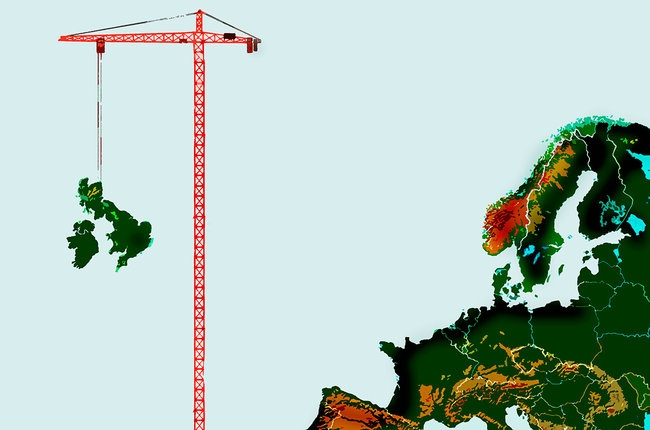Britain and the European Union on Monday started their Brexit talks in Brussels amid hopes in the U.K. entertainment industry that the split will be a soft rather than a hard one.
U.K. Brexit secretary David Davis and the EU’s top negotiator Michel Barnier met in Brussels at 11 a.m. local time to kick off what Davis has called the "most complicated negotiation of all time." The talks began nearly a year after a referendum that saw 51.9 percent of votes for the British exit from the European Union, which has 28 members, including Britain.
Observers have said that the position of British Prime Minister Theresa May and her government has been weakened by the recent election, which lost her the majority in parliament. May had called for an early election in the hope of getting a stronger hand to drive a harder bargain in the Brexit negotiations.
May had been focusing on a so-called hard Brexit during the election campaign, while some of her party members are now calling for keeping closer ties and stronger relationships with the EU.
John Kampfner, CEO of the Creative Industries Federation, a national organization for the creative industries and the arts, said that the election outcome means that "there is no clear mandate for the government to negotiate a hard Brexit."
The Federation's members were 96 percent in favor of remaining in the EU when surveyed before the referendum. "They saw Brexit is a threat to the continued success of the creative industries, damaging growth and the U.K.’s global outlook," Kampfner said. "The Federation will push for the U.K. to remain in the single market and the customs union and against undue restrictions on free movement, which we know will damage the capacity of the creative industries to deliver. Non-U.K. EU nationals are an important part of the creative economy."
Highlighting the need to "maintain the U.K. creative industries’ competitive advantage," he concluded: "It remains vital we secure the best possible deal for the sector during what will be a turbulent period of political and constitutional change."
Others industry representatives say that the Brexit vote and the uncertain outcome of the EU talks about what forms it takes cast a shadow over the entertainment sector.
“The film and television industry depends upon relationships — financial, professional and creative — with Europe and the rest of the world," Michael Ryan, chairman of the Independent Film & Television Association, said after the election. "Brexit itself has compounded the existing marketplace uncertainties that affect us. Now, with the scope of the government’s mandate to negotiate the U.K.’s trade and legal relationships internationally open to question, we are simply apprehensive for the future."
There is no precedent for Brexit as no founding member has ever left the EU. Analysts, however, have predicted that the U.K. will end up with a version of one of three existing models of countries that are collaborating with the EU without being members: the Norwegian, the Swiss or the Turkish models.
Norway is a member of the European Economic Area, which gives it full access to the EU market in return for contributing to the EU budget and following most EU laws. If the U.K. followed that model, its producers would continue to have access to EU subsidies, U.K. productions would continue to qualify under EU TV quotas and U.K. talent would still be considered European, meaning talent could travel freely. British politicians supporting Brexit have typically spoken out against the freedom of movement for all EU citizens though.
Switzerland, meanwhile, is a member of the European Free Trade Association, negotiating access to the European single market on a sector-by-sector basis. That model could mean few real changes for the film and TV industry, other than Britain losing its seat at the table for future negotiations. But Switzerland also accepts the principle of freedom of movement for EU citizens.
Turkey follows yet another model. It is a member of the EU's customs union, meaning Turkish exports to the EU are tariff-free. Turkey does not have to accept the principle of freedom of movement of EU citizens, but still gets access to the EU market. Since that approach would mean that U.K. citizens can no longer travel and work visa-free across Europe, cooperation on film and TV productions would become more difficult and more expensive. And it is not clear if U.K. producers could apply for EU subsidies in the same manner they do now.
U.K. TV giant ITV has said since the Brexit vote that the EU exit has cast a shadow over TV advertising as it has caused "economic uncertainty."
Ahead of Monday's opening round of the Brexit talks, Liberum Capital analyst Ian Whittaker on Friday wrote in a report about ITV that its stock remains "incredibly attractive" amid the current caution of marketers in Britain. "TV's weakness is being driven by advertisers not spending on TV because they are focused on bottom-line issues, rather than they have lost their belief in the effectiveness of TV advertising," he wrote. "In this regards, the downturn's drivers are more cyclical in nature, with Brexit likely to be also playing a part, than a fundamental decline in TV advertising."
This article was originally published by The Hollywood Reporter.








